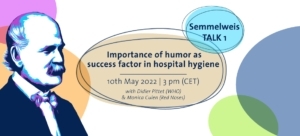A recently in The Lancet Infectious Diseases published study estimates the potential impact of antibiotic resistance on common surgery and cancer procedures. The surgery is painting a grim picture. With Ramanan Laxminarayan, co-author oft he study and director of the Center for Disease Dynamics, Economics & Policy (CDDEP) spoke Carola Timmel.
The declining effectiveness of antibiotics may make tens of thousands more U.S. patients vulnerable to potentially fatal infections after surgery or chemotherapy, the researchers of the study estimate. Up to half of pathogens causing surgical site infections and more than a quarter of bugs leading to infections after chemotherapy are already resistant to antibiotics commonly used in the U.S.
The study (published on 15 October) is describing a scenario, in which doctors can no longer keep life-threatening infections at bay and thousands more patients could die or forgo needed care because of the increased risk.
Besides this fact, the study also states that although the trend in antibiotic resistance is alarming it can be reversed with significant investments in antibiotic stewardship. But how an effective stewardship should look like, and where do we need to start in order to manage this challenge successfully?
Effective stewardship would begin with first reducing the need for antibiotics, through vaccination and infection control. Also hand washing can play a critical role – an idea, I’m sure the Semmelweis Foundation is passionate about, says Prof. Ramanan Laxminarayan, co-author oft he study and director of the Center for Disease Dynamics, Economics & Policy (CDDEP). In the event of an infection, it is important that an antibiotic prescription is accompanied by a culture to determine the organism and its sensitivity. Unfortunately this doesn’t happen nearly as often as it should, says Laxminarayan. Finally, in the event of a negative culture, there needs to be de-escalation of the antibiotics prescribed. All of these steps are easy enough to follow but even the best hospitals around the world fall considerably short in their efforts to protect antibiotic effectiveness for patients who truly need these lifesaving drugs, Laxminarayan concludes.
Links to the study and the Center for Disease Dynamics, Economics & Policy (CDDEP):
http://www.thelancet.com/journals/laninf/article/PIIS1473-3099(15)00270-4/abstract
http://cddep.org




